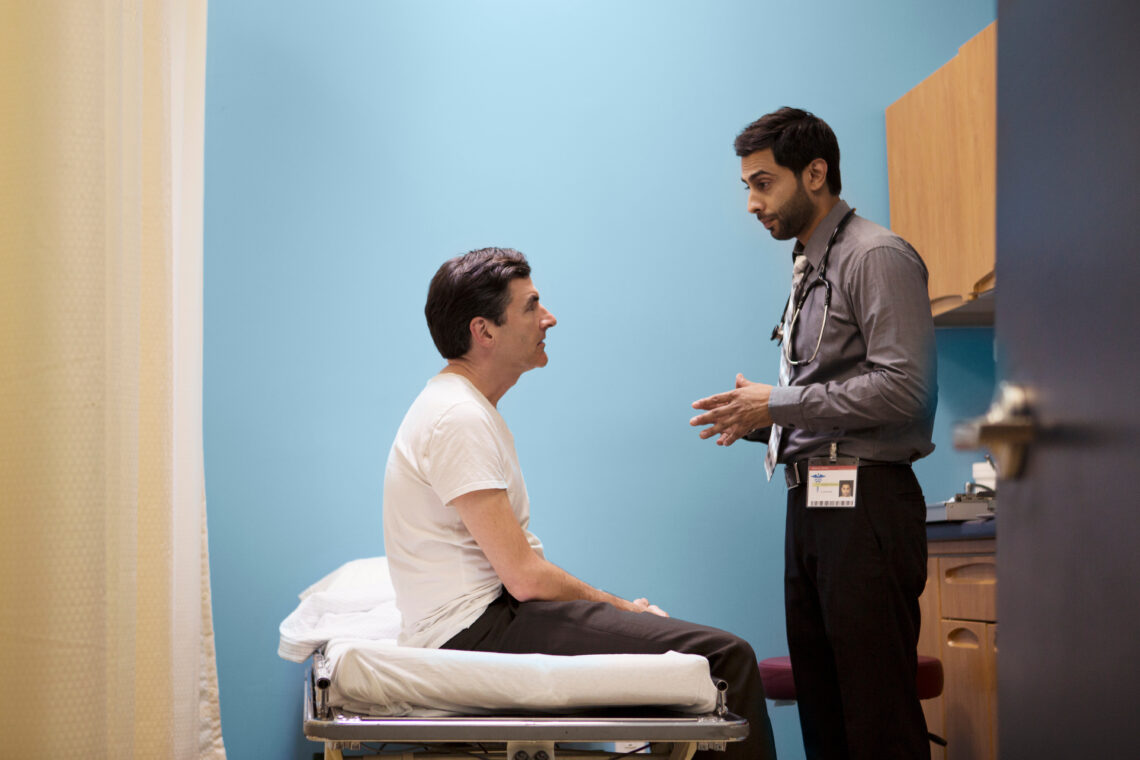
Getting a Second Opinion; Is That Insulting to Your Doctor?
When we needed a new roof for our house a few years ago, we researched a few companies and asked them to submit quotes for the work. Once we had the information, we compared the costs and chose the company we used.
Another time, I contacted three local companies to discuss installing air conditioning units. The first two representatives who came to check out my house and provide a quote strongly advised that I not go through with my plan. They explained why the 1931 closed-room layout of my house was not suitable for this type of air conditioning, and if I spent all that money, I would not be happy. The third guy looked around, asked me what I wanted, and said, “Sure, we can do that, no problem.” I didn’t get the units. I felt that if the other two companies were willing to lose out on the project, and they both gave me the same explanations as to why they didn’t think it was a good idea, there was a good reason.
So what do my roof and non-existent air conditioning have to do with health and wellness? It’s the fact that I got extra opinions and didn’t settle for just one person or company telling me what I should do and for what cost. If we do that for our house and other items, shouldn’t we do that for our health too?
Not everything needs a second opinion
Not every diagnosis or procedure needs a second opinion. That would gum up the health system even more than it is already. If you are happy with your doctor’s care and your treatments are going well, you probably don’t need to ask anyone else if they would do anything differently. Still, there are some situations where a second opinion may be warranted or even necessary.
 Yale Medicine addressed the issue in an article published in 2020. The authors wrote:
Yale Medicine addressed the issue in an article published in 2020. The authors wrote:
“While it can depend on the problem and situation, multiple studies make a case for getting additional medical opinions. In 2017, a study showed that 21% of patients who sought a second opinion at the Mayo Clinic left with a completely new diagnosis, and 66% were deemed partly correct, but refined or redefined by the second doctor.”
The article goes on to say that common situations for second opinions are cancer treatments and surgeries, but there are many other reasons too.
If you’re trying to decide what you should do, you might want to ask yourself these questions:
- Do I understand what my doctor said?
- Is my condition serious?
- Is my treatment not working or not working fast enough?
- Do I need surgery or an invasive procedure?
- Is my doctor recommending treatment that could have significant side effects or complications?
- How do I feel about my doctor and our interactions? Do I feel listened to? Do I feel confident?
- Might there be a better treatment available?
- Do I have anything to lose by seeking a second opinion?
You also should check if your insurance company will cover a second opinion.
There is an exception when you might not be able to ask for a second opinion. That is in the emergency department. If the emergency medicine physician or surgeon recommends emergency treatment, there will likely be no time to ask for a second opinion. However, if you do not feel comfortable, please ask to involve a patient advocate to help you through that difficult process.
A second opinion doesn’t mean you don’t trust your doctor
If you’re concerned that your doctor or surgeon may be insulted that you want a second opinion, don’t feel that way. Seriously. Your doctor is probably giving second opinions to other patients and may very likely give you names of other doctors you could contact. It’s the way medicine works. It’s standard medical practice.
The second pair of eyes that go over your chart and tests, and examine you, may see something your first doctor didn’t.
What to ask at the appointment
When you go to your second opinion appointment, bring your records with you, along with your test results. Explain the diagnosis as you understand it and what your doctor recommended. Then ask what this doctor thinks. You may also want to ask some of these questions:
- Could there be a different explanation for my symptoms, a different diagnosis?
- Should I have any other tests?
- If you agree with the diagnosis, what treatment would you recommend?
- Are there any other treatments aside from the one you recommend?
- If you disagree with the diagnosis, why? And what would you then recommend?
Two opinions, what’s the next step?
Now that you have two opinions, what do you do? If both are the same or close, you might feel more confident moving ahead, choosing the doctor you feel most comfortable with. If, however, there are disagreements with the diagnosis or treatment, you may want to weigh the pros and cons of both with an objective friend or family member.
There are situations when a second opinion is drastically different from the first one and this can be distressing and confusing. Who should you listen to? In this case, you may need a third opinion. That said, it’s important not to overdo it. If you see too many doctors for the same problem, you may end up causing more confusion and anxiety.
Never forget – you are the central part of your healthcare team. You need to understand what is happening to make the best decisions. If this means asking for a second opinion, then it’s your right to do so.
Disclaimer
The information in this blog is provided as an information and educational resource only. It is not to be used or relied upon for diagnostic or treatment purposes.
The blog does not represent or guarantee that its information is applicable to a specific patient’s care or treatment. The educational content in this blog is not to be interpreted as medical advice from any of the authors or contributors. It is not to be used as a substitute for treatment or advice from a practicing physician or other healthcare professional.




